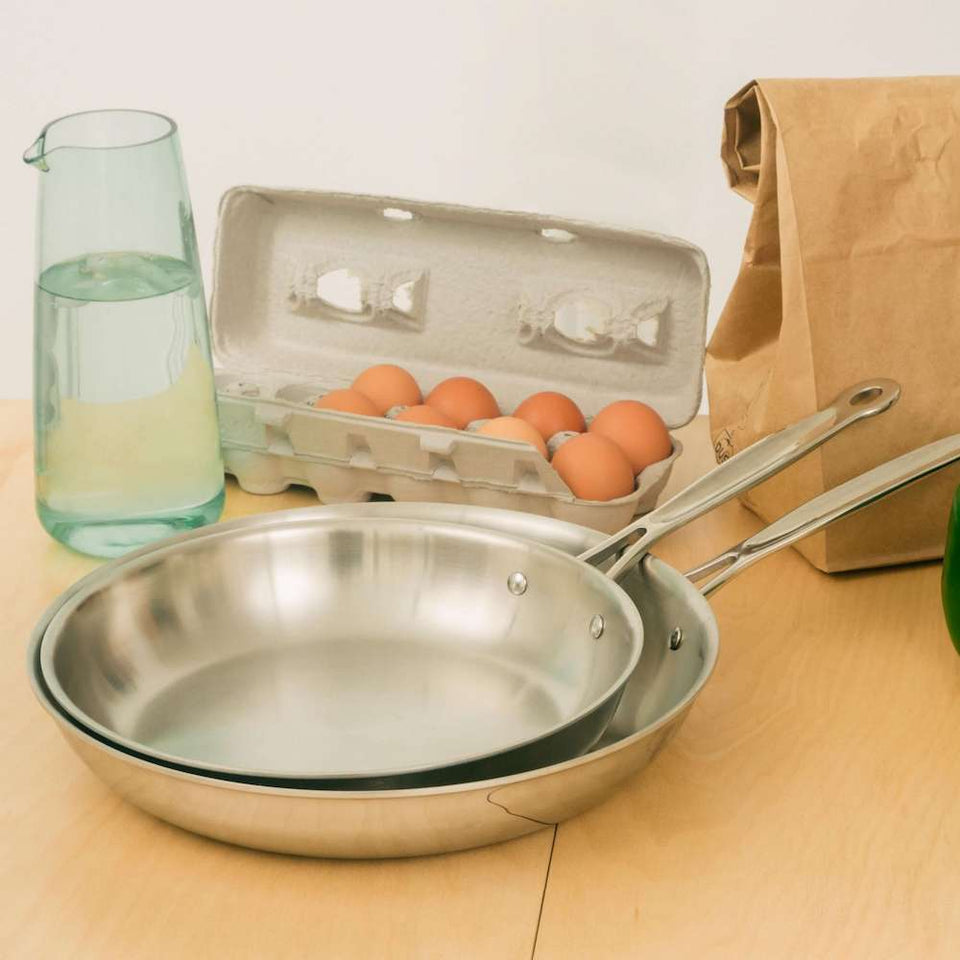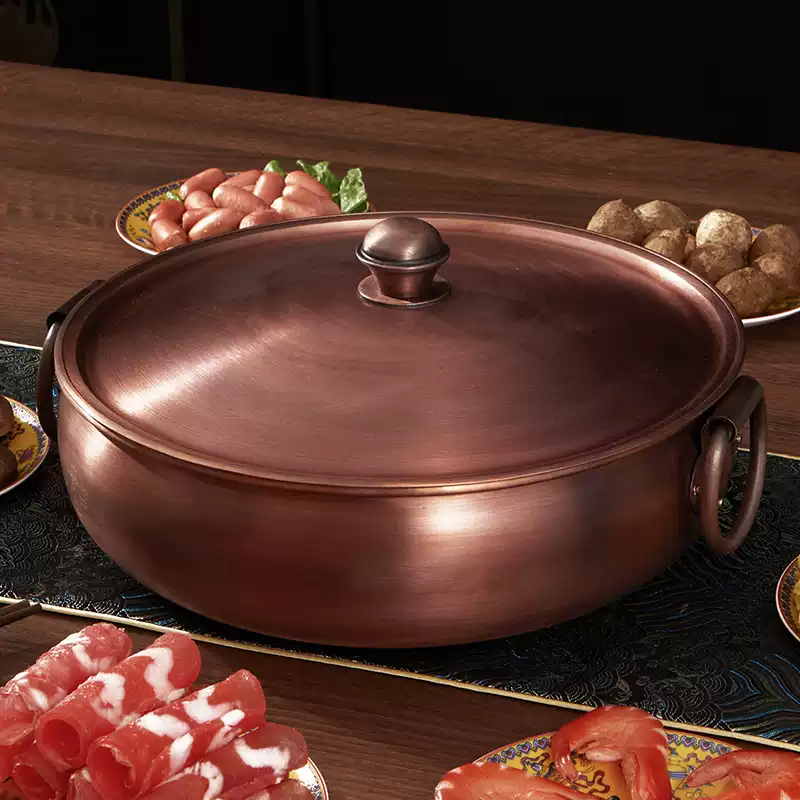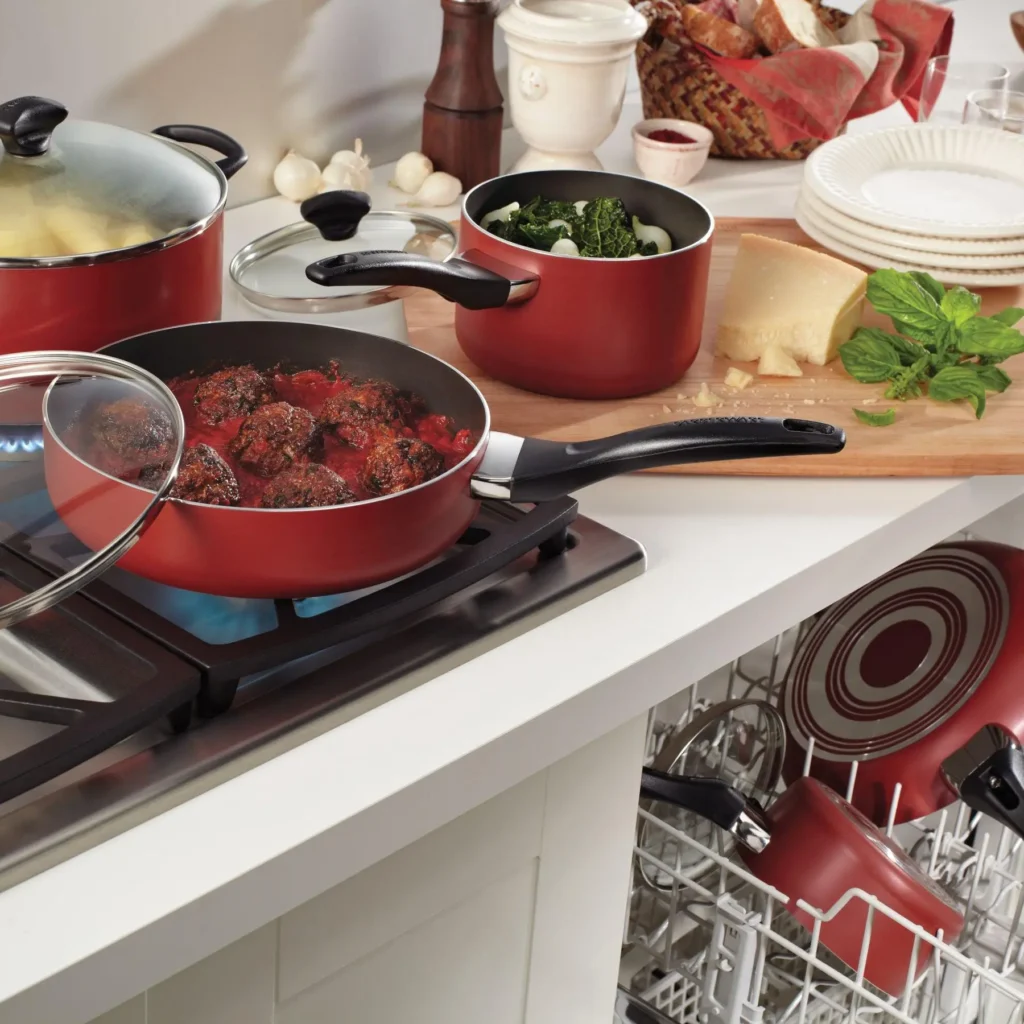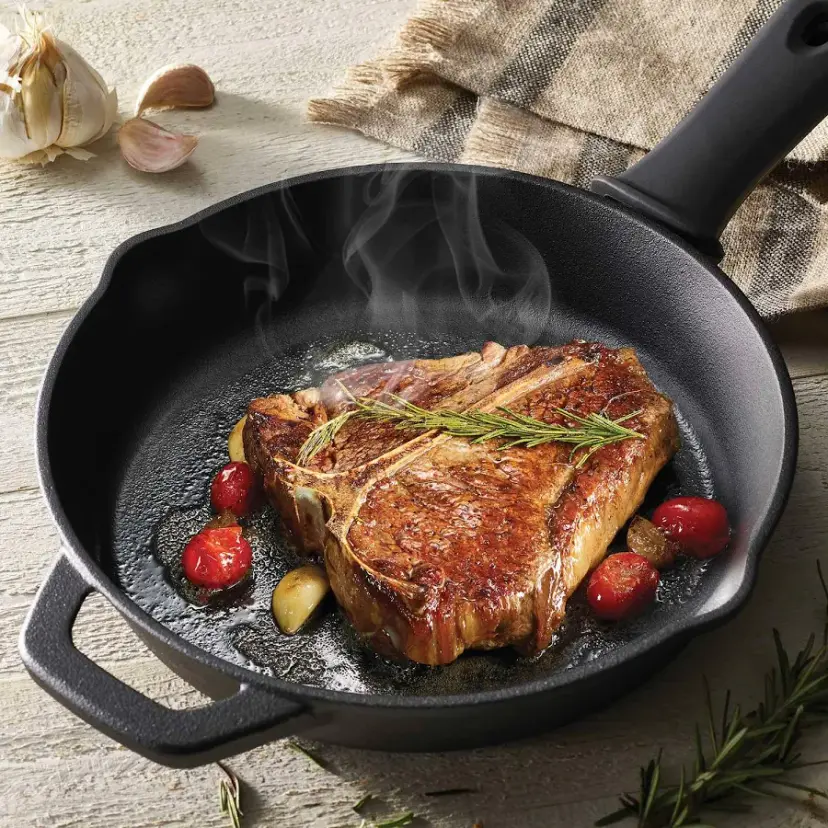Introduction:
Triply cookware provides the perfect balance of precision and control for delicate dishes.
I’ve found that cooking delicate foods like fish, eggs, and sauces requires cookware that offers consistent heat without overheating. Triply cookware, with its multi-layer construction, ensures even heat distribution and precise temperature control, making it an excellent choice for these dishes.
Triply cookware is ideal for delicate foods due to its even heat distribution and non-reactive surface. The stainless steel exterior prevents food from sticking or reacting, while the aluminum core ensures gentle, uniform heating. This combination allows cooks to handle fragile dishes like fish, crepes, or custards with precision, avoiding burning or uneven cooking.
From my experience, triply cookware has become essential for preparing delicate meals. Its ability to maintain stable heat and prevent hotspots ensures perfect results every time, making it a reliable choice for home cooks and professionals alike.

Why is Copper Ideal for Cooking Delicate Foods?
Copper cookware is known for its exceptional heat conductivity, which makes it a top choice for precise temperature control. Copper’s ability to heat and cool quickly means I can easily adjust the cooking temperature to prevent overcooking sensitive ingredients.
Advantages of Copper for Delicate Foods:
• Precise Temperature Control: Copper’s rapid responsiveness to heat changes helps me avoid overcooking fragile foods like eggs and fish.
• Even Heat Distribution: The uniform heating across the pan prevents hotspots, ensuring consistent results with sauces and delicate items.
Disadvantages:
• High Cost and Maintenance: Copper cookware is an investment and requires regular polishing to maintain its shine. It often comes with a stainless steel lining to prevent reactions with food.
For dishes that need careful attention to temperature, I find copper cookware indispensable. Despite its cost and maintenance, copper delivers excellent control, making it perfect for delicate sauces and sensitive proteins.

How Does Aluminum Alloy Perform with Delicate Foods?
Aluminum alloy is light and conducts heat quickly, making it a great choice for fast, responsive cooking. Anodized aluminum, in particular, is both durable and non-reactive, adding to its appeal for cooking delicate foods.
Advantages of Aluminum Alloy for Delicate Foods:
• Quick Heat Conduction: Aluminum alloy heats rapidly, making it ideal for quickly cooking delicate items like eggs and sauces.
• Lightweight and Easy to Handle: The light nature of aluminum allows me to maneuver the pan easily for precise cooking.
Disadvantages:
• Reactive if Not Anodized: If the aluminum isn’t anodized, it can react with acidic foods, potentially altering flavors.
For a budget-friendly and effective option, anodized aluminum is a fantastic choice. Its lightweight and fast-heating properties make it versatile and suitable for quick, careful cooking.

Why is Triply Cookware Suitable for Delicate Cooking?
Triply cookware features a three-layer construction, usually combining stainless steel and an aluminum core. This blend brings together the durability of stainless steel with the heat conductivity of aluminum, making it perfect for a range of delicate cooking tasks.
Advantages of Triply for Delicate Foods:
• Even Heating: The aluminum core ensures consistent heat, which is critical for cooking delicate items without burning or sticking.
• Non-Reactive Stainless Steel: The outer stainless steel layers don’t react with food, so flavors remain intact, which is essential for sauces and subtle flavors.
Disadvantages:
• Heavier and More Expensive: Triply cookware is often heavier and pricier than single-layer options, but the balanced performance justifies the investment.
I find Triply cookware offers a great balance between heat control and durability. It’s my go-to when I need even heat for cooking fish or making sauces that require gentle simmering.
How Does Stainless Steel Work for Cooking Delicate Foods?
Stainless steel is highly durable and doesn’t react with foods, making it ideal for a range of cooking styles. However, single-layer stainless steel pans can sometimes create hotspots, so I prefer multi-layered or encapsulated base options for cooking delicate foods.
Advantages of Stainless Steel for Delicate Foods:
• Non-Reactive Surface: Stainless steel is safe for acidic ingredients, making it suitable for tomato-based or creamy sauces.
• Durability: Its scratch-resistant surface means it holds up well over time, even with frequent use.
Disadvantages:
• Poor Heat Conductivity Alone: Single-layer stainless steel lacks even heating unless paired with a conductive core, like aluminum or copper.
For delicate foods, I rely on stainless steel pans with an aluminum or copper core. They provide the non-reactive qualities of stainless steel with the added benefit of consistent heating.
Why is Carbon Steel a Good Choice for Delicate Foods?
Carbon steel is often compared to cast iron but is lighter and heats more quickly, making it a good choice for cooking delicate foods. It can also be seasoned, creating a natural non-stick surface that’s great for frying eggs and other fragile items.
Advantages of Carbon Steel for Delicate Foods:
• Quick Heating: Carbon steel responds well to temperature changes, making it ideal for controlling heat when cooking sensitive foods.
• Naturally Non-Stick When Seasoned: Once seasoned, carbon steel becomes naturally non-stick, perfect for eggs or thinly sliced fish.
Disadvantages:
• Regular Maintenance Required: Carbon steel needs frequent seasoning to prevent rust and maintain its non-stick qualities.
For delicate frying tasks, carbon steel is an excellent choice. I enjoy using it when I want the benefits of cast iron but with faster heating and easier handling.
Claim: Why These Materials Are Best for Cooking Delicate Foods
Each of these cookware materials has its unique strengths, making them well-suited for handling delicate foods. Copper and Triply provide precise temperature control and even heating, making them ideal for sauces and soft proteins. Aluminum alloy is lightweight and heats quickly, a good budget-friendly option. Stainless steel works well for non-reactive cooking with acidic foods, and carbon steel offers a natural non-stick surface with quick heat response.
Conclusion: Which Cookware Material is Best for Your Delicate Foods?
When it comes to cooking delicate foods, choosing the right cookware material is essential. Copper, Triply, aluminum alloy, stainless steel, and carbon steel each offer specific benefits for handling fragile ingredients. Understanding these characteristics helps me choose the right tool for each dish.
The right cookware not only improves cooking outcomes but also ensures a smooth and enjoyable experience in the kitchen. By selecting the ideal material for delicate foods, I can confidently cook everything from eggs to light sauces with the perfect texture and flavor every time.






